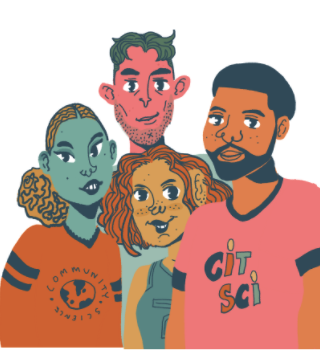The Noise Project brings together the goals of furthering science and furthering equity. Our team carries out Community-based Participatory Research (CBPR), which is a method of research conducted at the community level by engaging with individuals and organizations in the community to further science. Traditionally, the focus of CBPR has been on the benefits of science for communities and in gaining data and information from these communities to further a research question or objective. Although this dynamic might further research goals, it does not create an equitable collaboration between community partners and institutional researchers. This is because community partners are not seen as equal to institutional researchers, and are more often than not excluded from various parts of the process.

Our project believes that bringing a framework of justice, equity, diversity, and inclusion (JEDI) into community-based research helps to mitigate the differences in power between community partners and scientific researchers. When research is done within communities, it must also be done by and alongside the members of that community. In this way, the voices and experiences of community members can shape the research process, which ensures that research practices, results, and objectives are relevant to community priorities and experiences.
What does equity actually look like when applied to research collaborations? For our project, it looks like acknowledging how science has historically oppressed and exploited minoritized communities such as communities of color and indigenous communities. By acknowledging this from the beginning, we foster conversations that seek to understand, respect, and tackle the barriers that minorities now face in the sciences.
For the Noise Project, equity in research also looks like co-creating our research guidelines, processes, and methodologies. This means that we work collaboratively on all aspects of our project so that both institutional researchers and community partners have agency and ownership over the research process and materials. Co-creation challenges us to find new ways to communicate and to make processes accessible to all members of the collaboration, no matter the difference in expertise, profession, time zone, identity, language, or culture. We believe that this strengthens our project by bringing together many different ways of knowing to create research that is innovative and inspiring. This is evident in our project through our use of visual arts, theatre, song, and storytelling to present our research and findings!
We center equity in our community-based research because community wisdom and experiences are profoundly valuable and help science and research expand. Our commitment to equity can be seen through our co-creating Community Working Agreements and Non-negotiables for working with communities. We believe, and have seen through our research, that working collaboratively in an inclusive way deepens our understanding of research and brings about relevant and meaningful impact for communities and the field of science.




